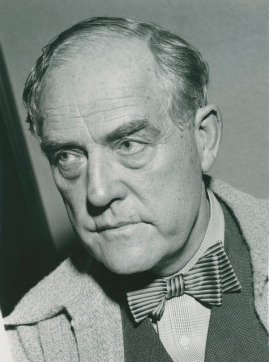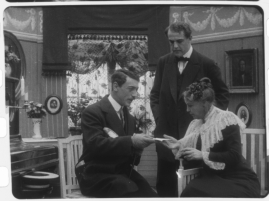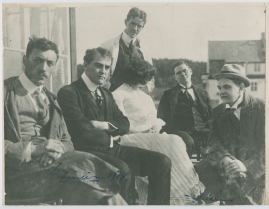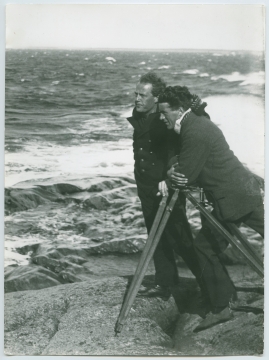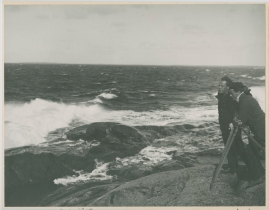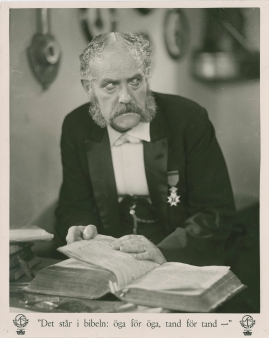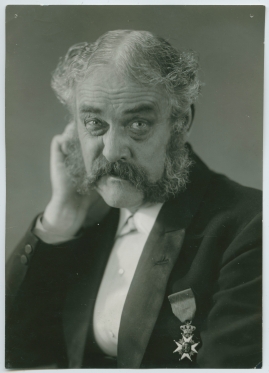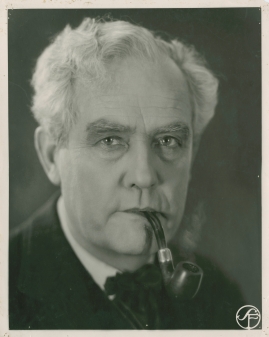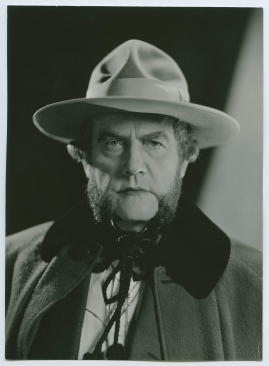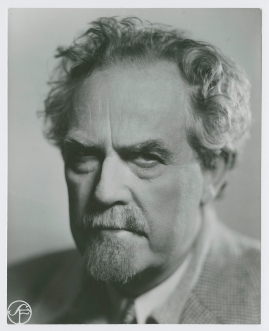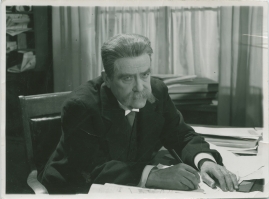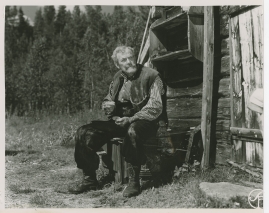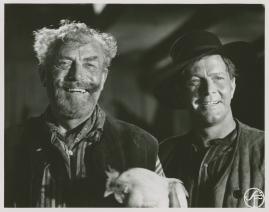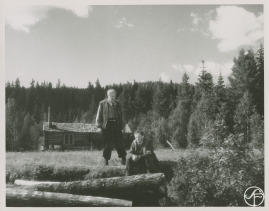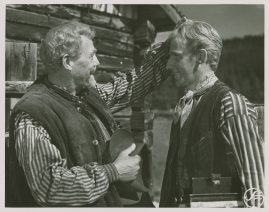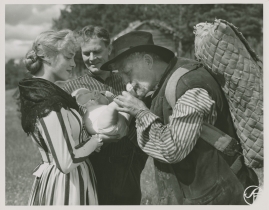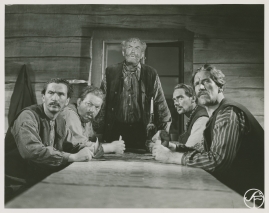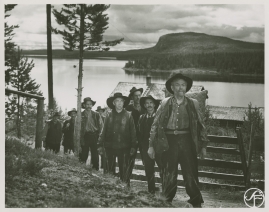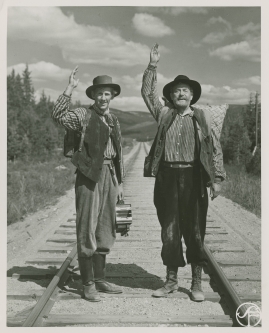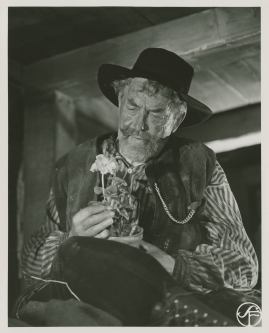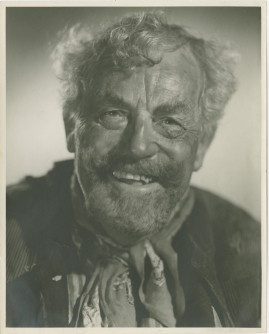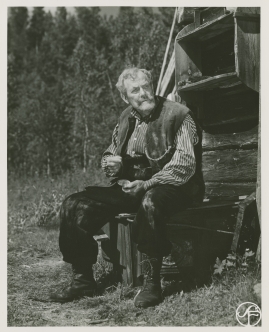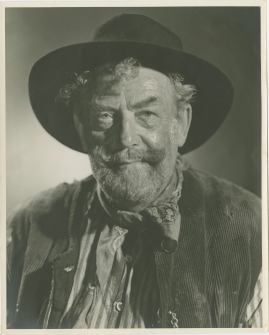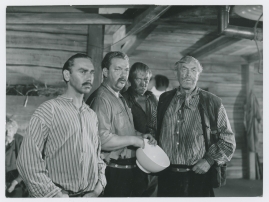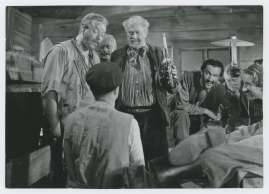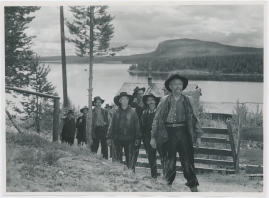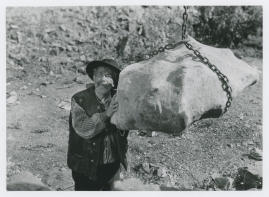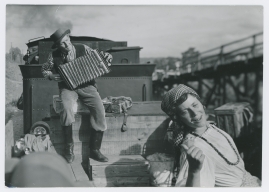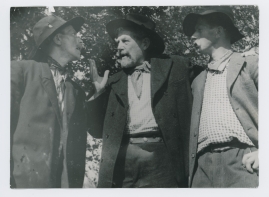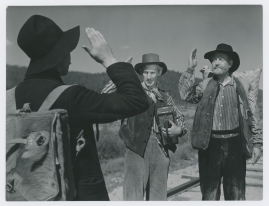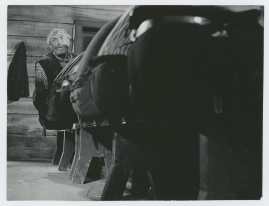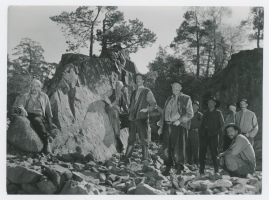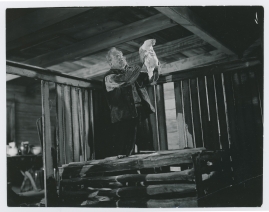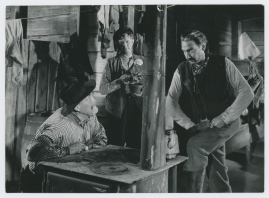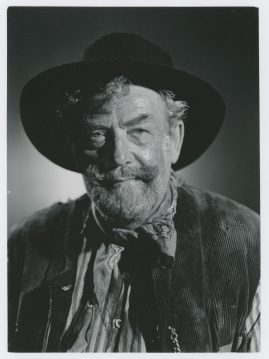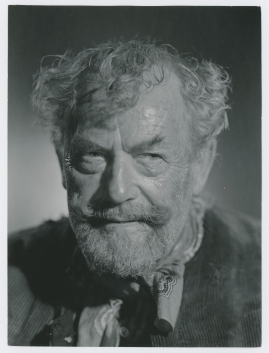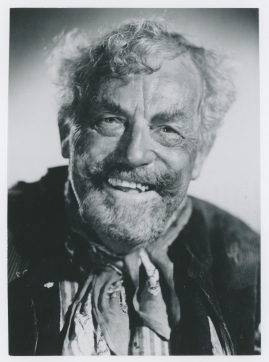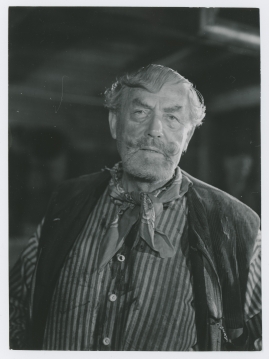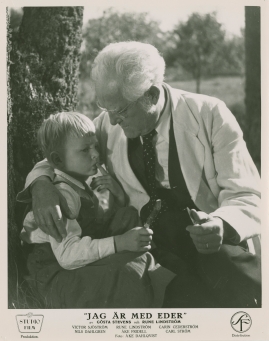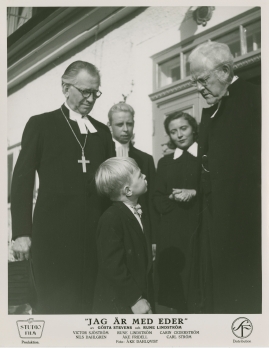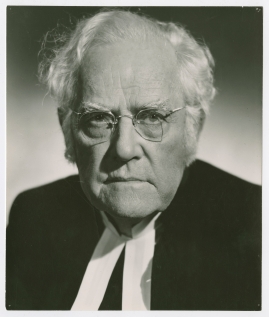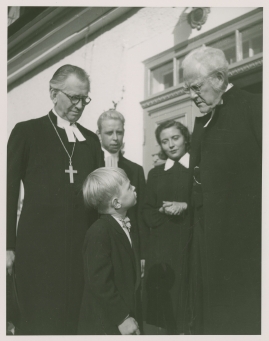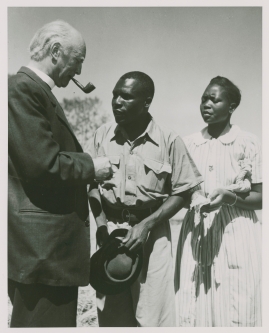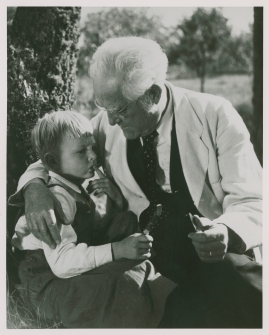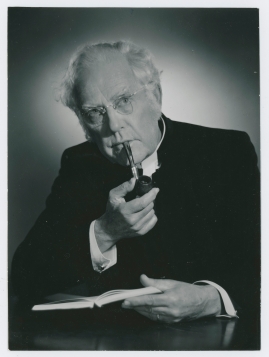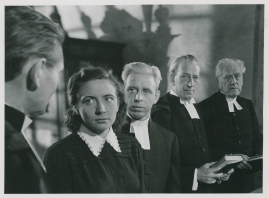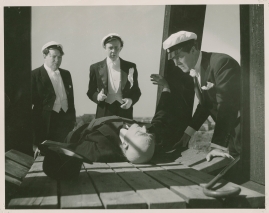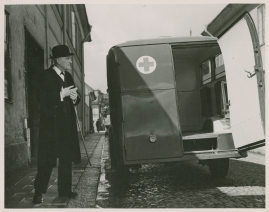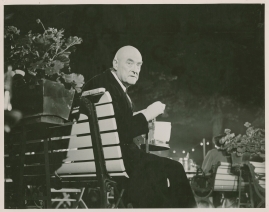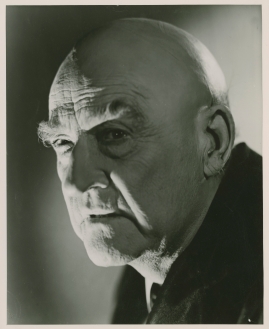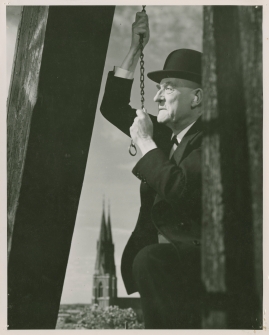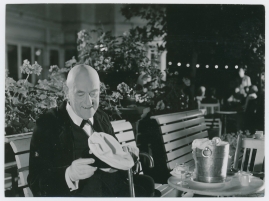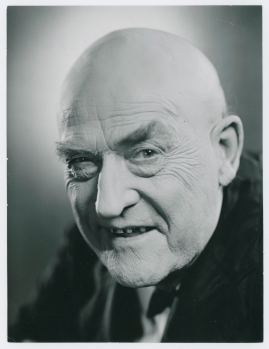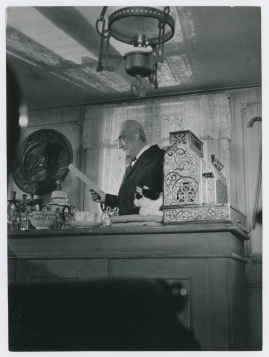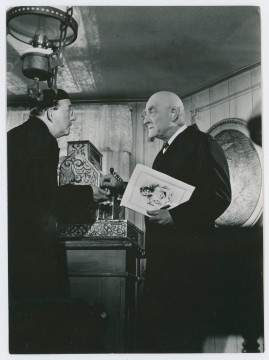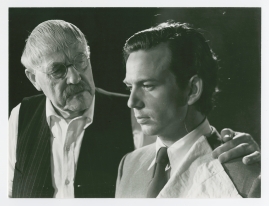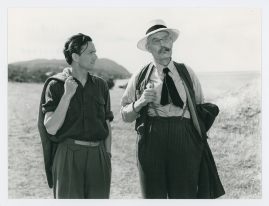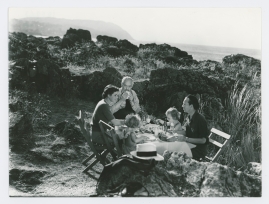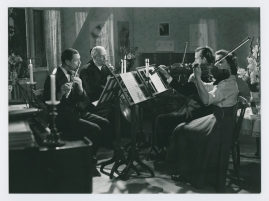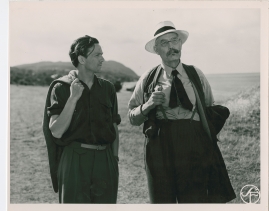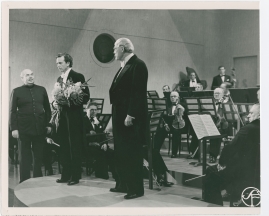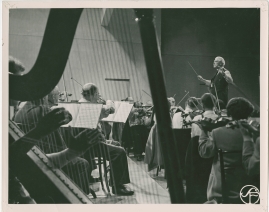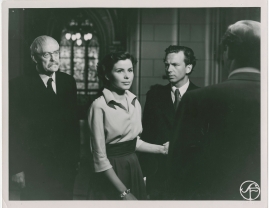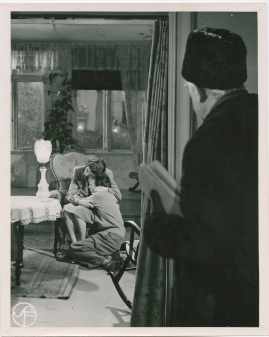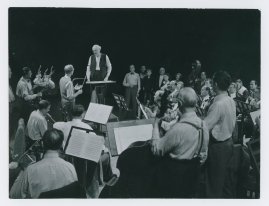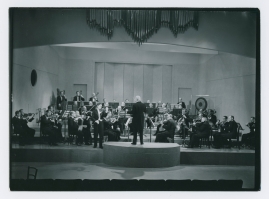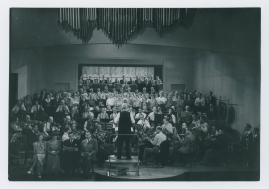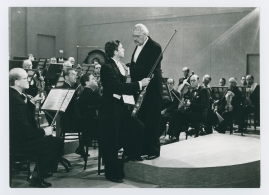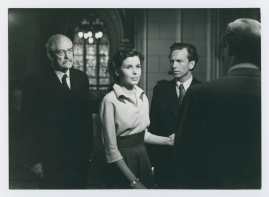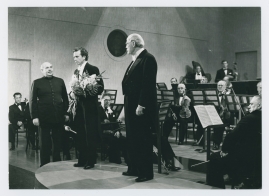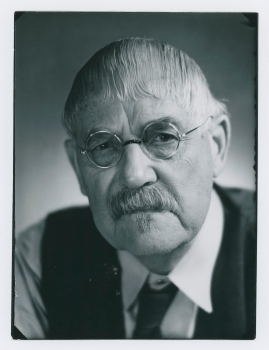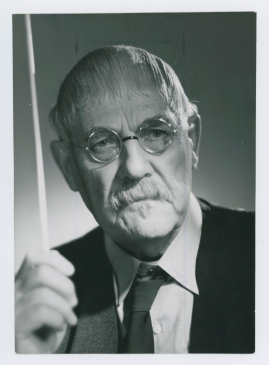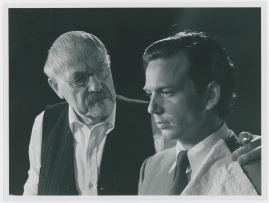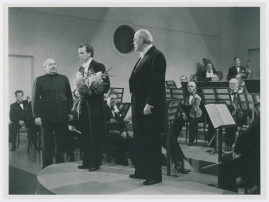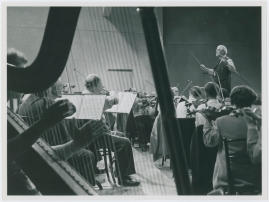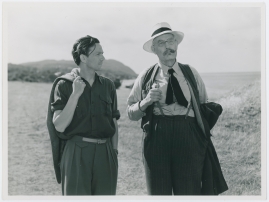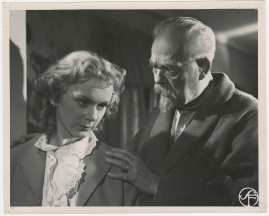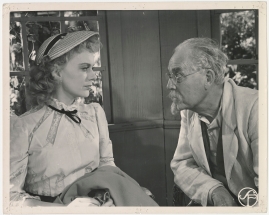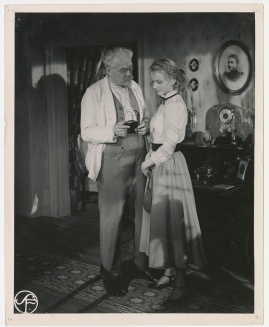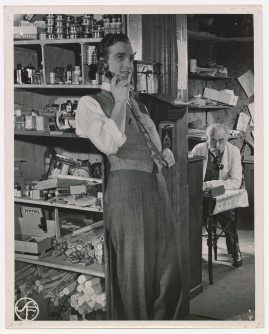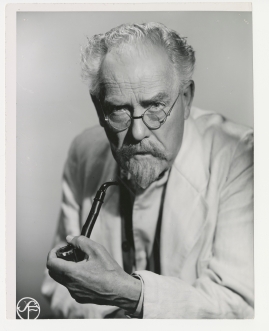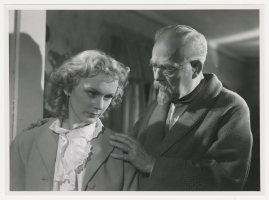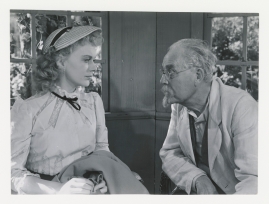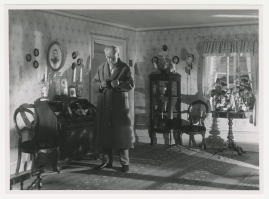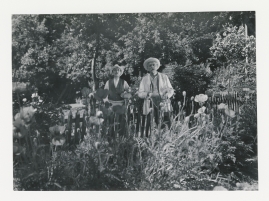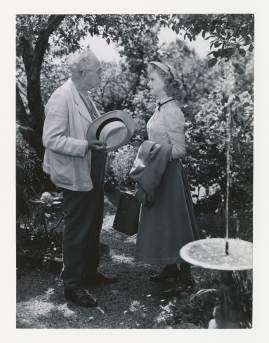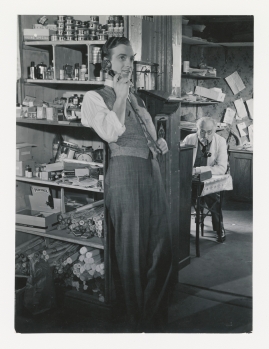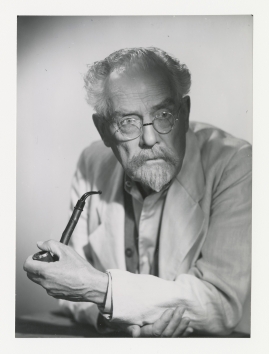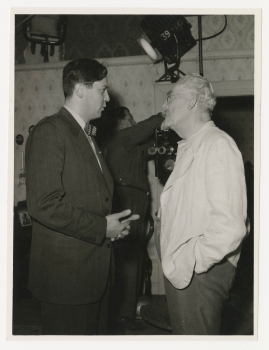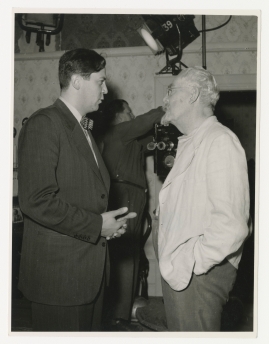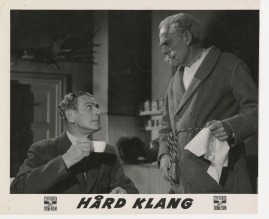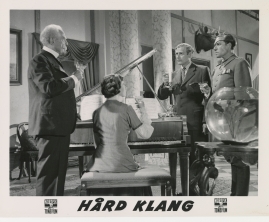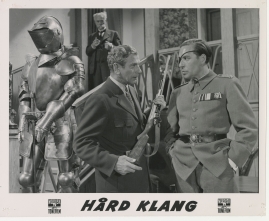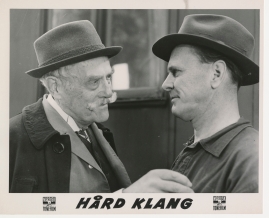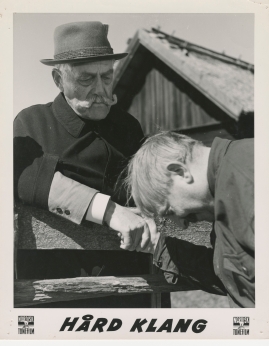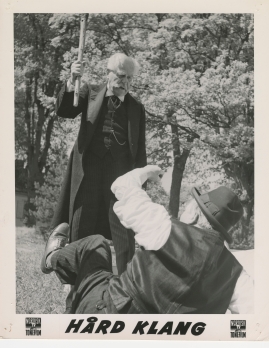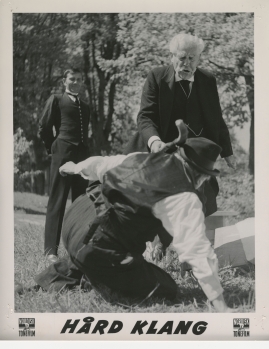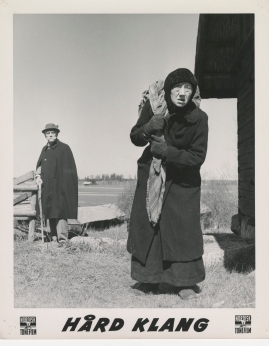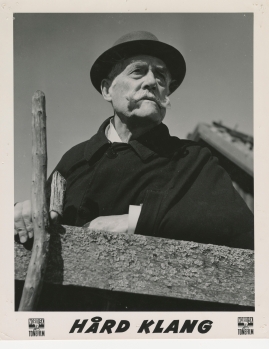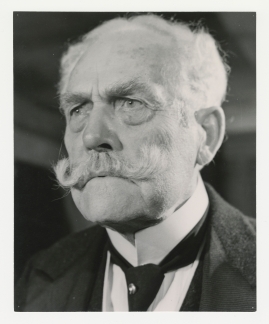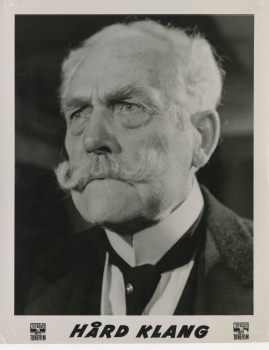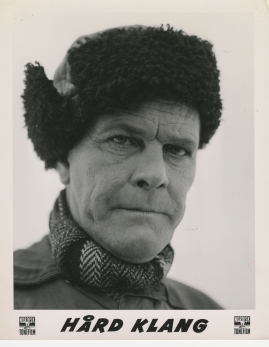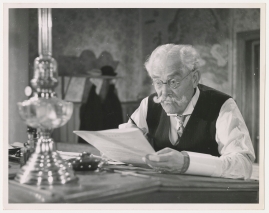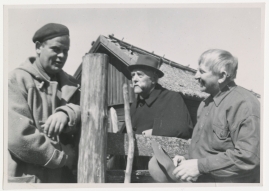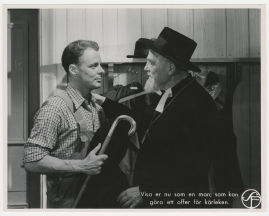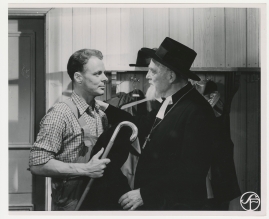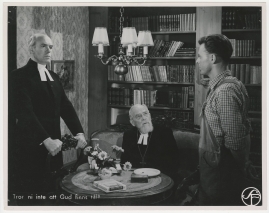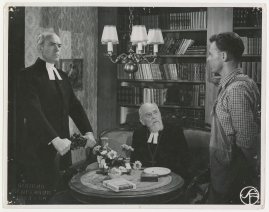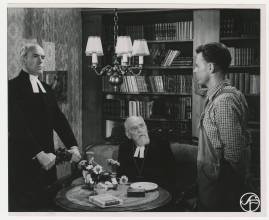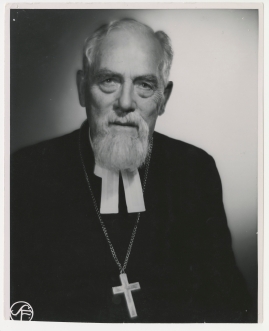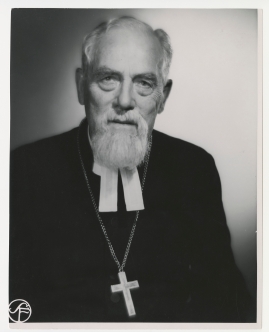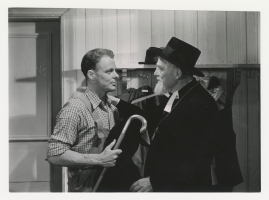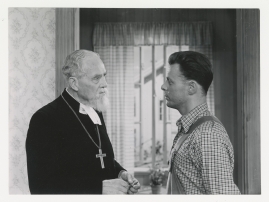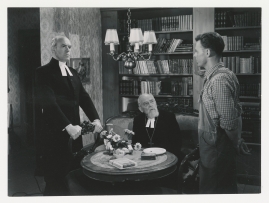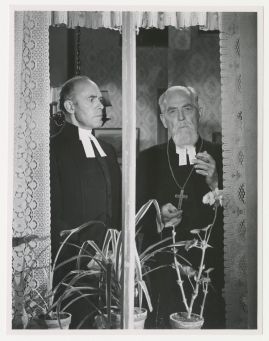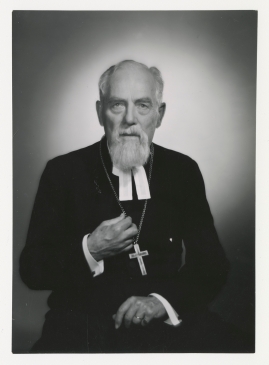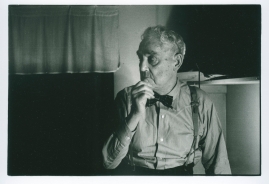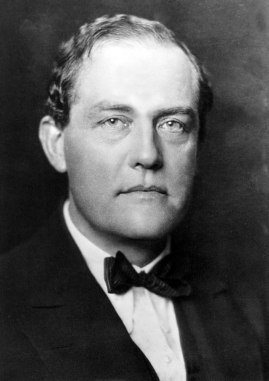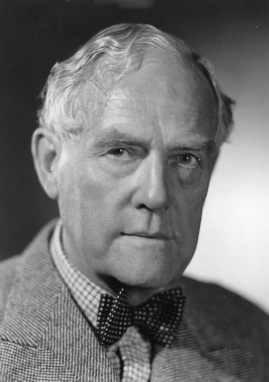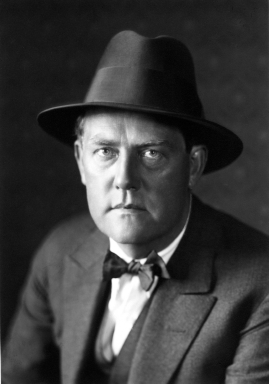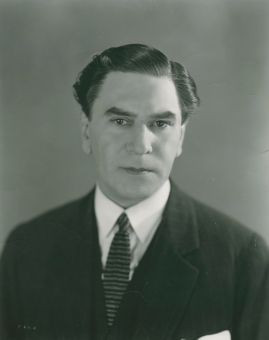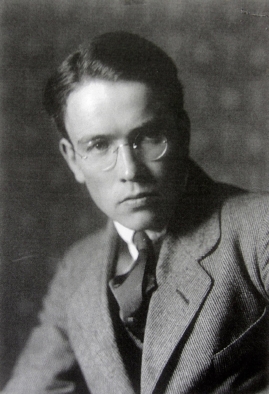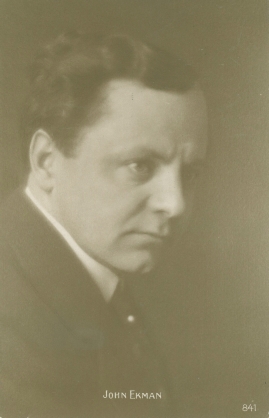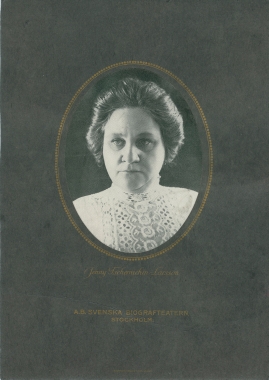Victor Sjöström
Table of contents
Basic facts
Media (121)
| Alternative names |
|
|---|---|
| Cast |
|
| Director |
|
| Show all films | |
| Awards |
|
Biography
Swedish director and actor. Born as David Sjöström in Silbodal, Värmland, Sweden.-Victor Sjöström (1879-1960) is, together with Mauritz Stiller, the towering figure of Swedish silent cinema. They were both working as theatre actors and stage directors when they were engaged by Charles Magnusson of Svenska Biografteatern in 1912. During his first five years as a film director Sjöström made no less than 30 films, the most famous being the great Ingeborg Holm (1913), a drama about a single mother losing custody of her children.Sjöström's Terje...
Links and resources
Biography
Swedish director and actor. Born as David Sjöström in Silbodal, Värmland, Sweden.
-
Victor Sjöström (1879-1960) is, together with Mauritz Stiller, the towering figure of Swedish silent cinema. They were both working as theatre actors and stage directors when they were engaged by Charles Magnusson of Svenska Biografteatern in 1912. During his first five years as a film director Sjöström made no less than 30 films, the most famous being the great Ingeborg Holm (1913), a drama about a single mother losing custody of her children.
Sjöström's Terje Vigen (1917), an adaptation of the Norwegian author Henrik Ibsen’s poem, was the most expensive film ever produced by Svenska Biografteatern. When the film became a resounding critical and financial success, the company decided to change their production policy radically. Instead of producing more than twenty films a year, the annual output dropped to only a handful, but each single film was longer, more well prepared and with a bigger budget. Another characteristic feature of Terje Vigen was that it was mainly shot on location, outside the studios. But Sjöström not only used the striking scenery as a spectacular backdrop for the unfolding drama, he also showed how Man and Nature interacts, something that is also evident in his following film, Berg-Ejvind och hans hustru / The Outlaw and His Wife (1918), set in Iceland but shot in the mountains in northern Sweden.
Many of Sjöström’s most famous films were adaptations of literary works by Selma Lagerlöf. After Tösen från Stormyrtorpet / The Girl from Marsh Croft (1917), he took on the author’s ‘Jerusalem’-cycle, resulting in Ingmarssönerna, del I och II / The Sons of Ingmar, parts I and II (1919) and Karin Ingmarsdotter / Karin, Daughter of Ingmar (1920). The next film based on Lagerlöf’s writings was Körkarlen / The Phantom Carriage (1921), the greatest of all Swedish silent films. The rich psychological portraits, the amazing performances (not least by Sjöström himself in the leading part), the complicated narrative structure and the spectacular multi-exposures (made by ace cinematographer Julius Jaenzon) combine into making the film Sjöström’s chef d’œuvre. The film is still today widely regarded as one of the finest silent films ever made.
After having made Eld ombord / Fire Onboard (1923), Sjöström accepted an offer from Hollywood, where he came to direct nine films in seven years, among them the classics The Scarlet Letter (1926) and The Wind (1928), both starring legendary actress Lillian Gish. After making his first talkie, A Lady to Love (1930), Sjöström returned to Sweden where he ended his Swedish directorial career with Markurells i Wadköping / The Markurells of Wadköping (1931). The film didn’t go down well with either critics or viewers, and Sjöström returned to the theatre. Apart from directing a film in England in the mid 1930s and some years as artistic head of production at Svensk Filmindustri in the 1940s, Sjöström devoted the rest of his time in cinema to acting. During the 1940s and 1950s he gave many memorable performances, most notably in Ordet / The Word (Gustaf Molander, 1943) and Smultronstället / Wild Strawberries (Ingmar Bergman, 1957), which was to be Sjöström’s last film.
Jon Wengström (2007)
Awards
| National Board of Review | 1959 | (bästa skådespelare) | |||
|---|---|---|---|---|---|
| Swedish Film Society Prize | Stockholm | 1958 | (guldplakett) | ||
| FIPRESCI | Berlin | 1958 | (för rollen och hela verksamheten) | ||
| Swedish Film Society Prize | Stockholm | 1953 | (hedersdiplom) | ||
| Charlie Award | Stockholm | 1941 | (roll) | ||
| Swedish Film Society Prize | Stockholm | 1938 | (förtjänsttecken) |
